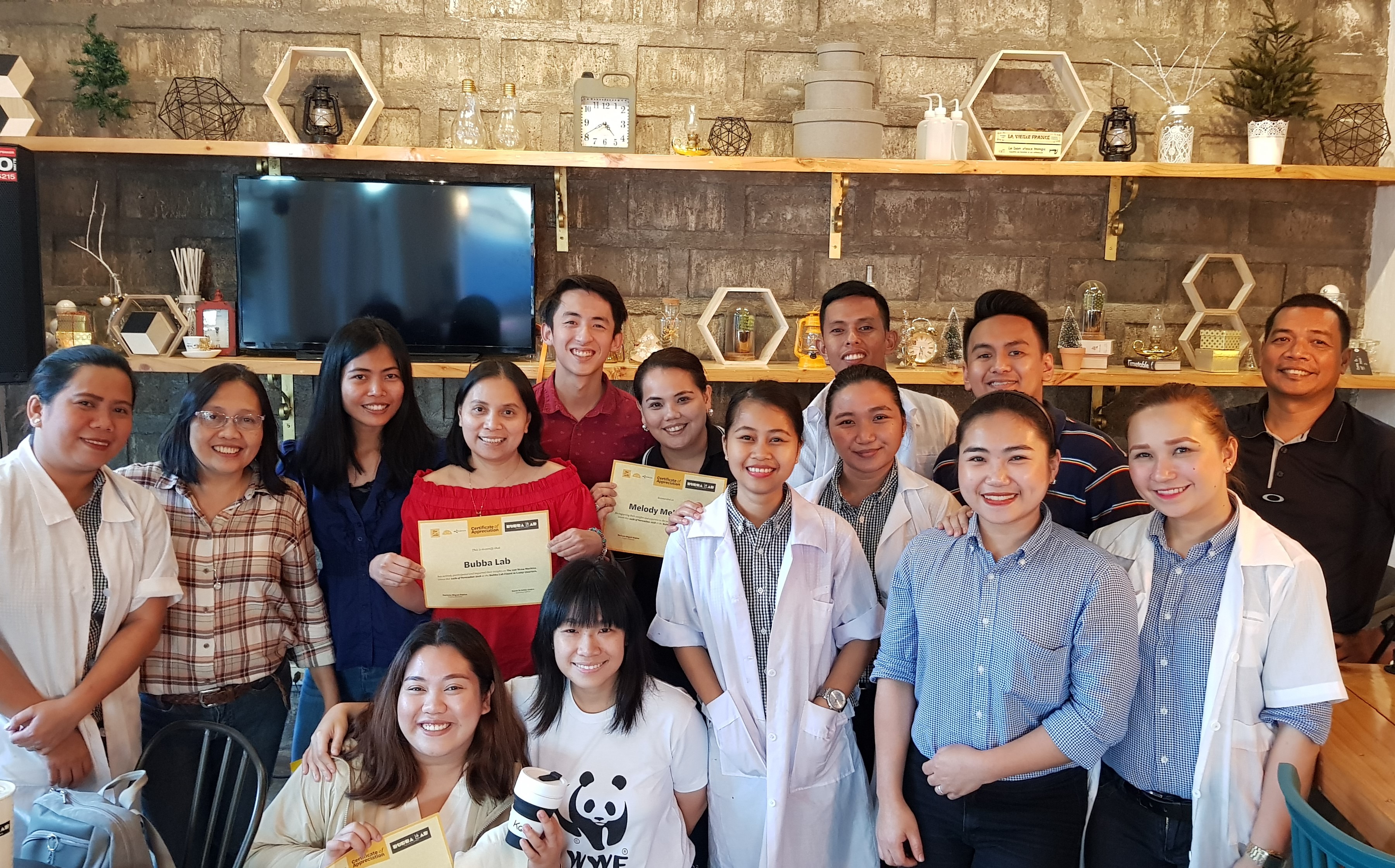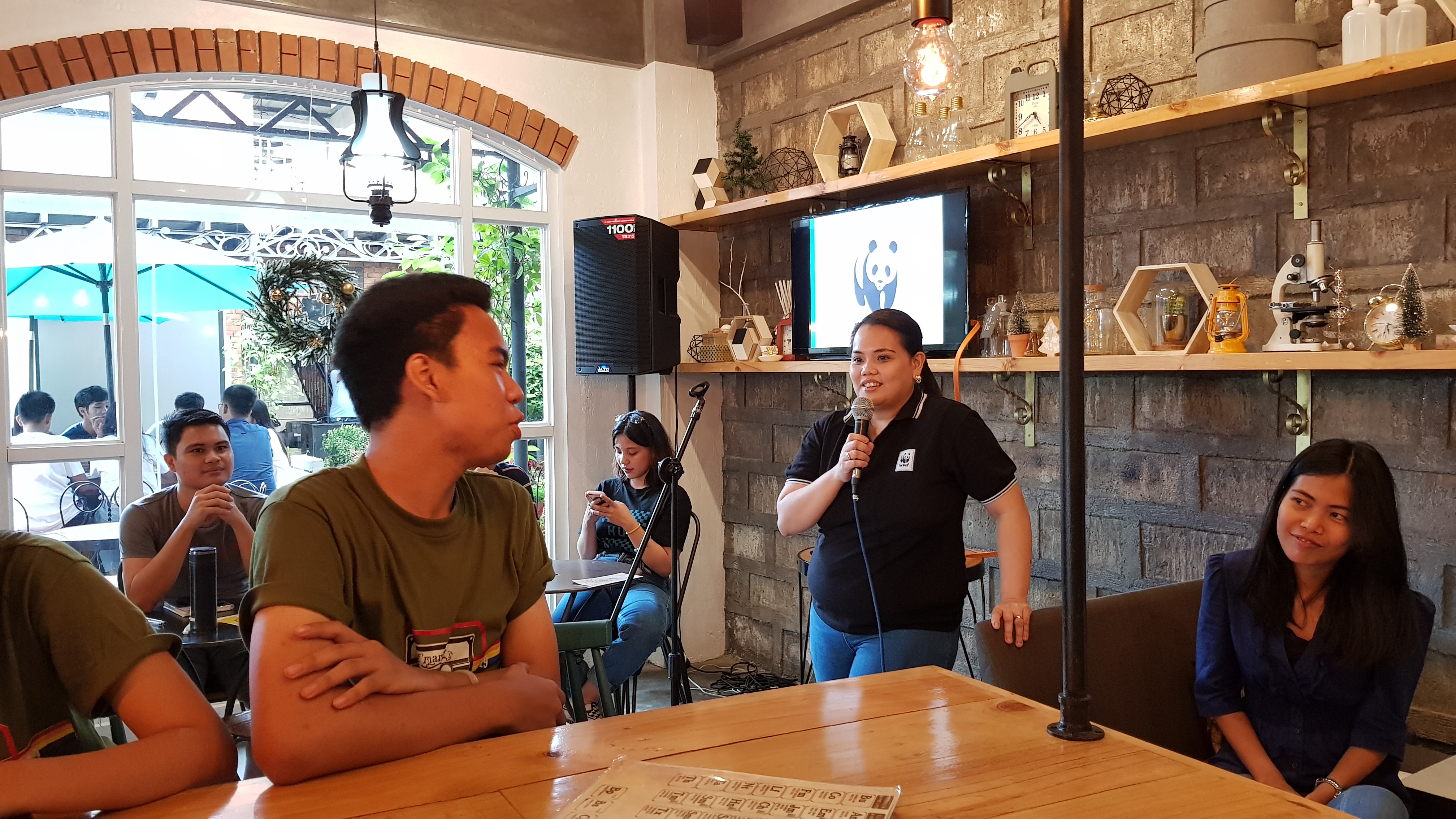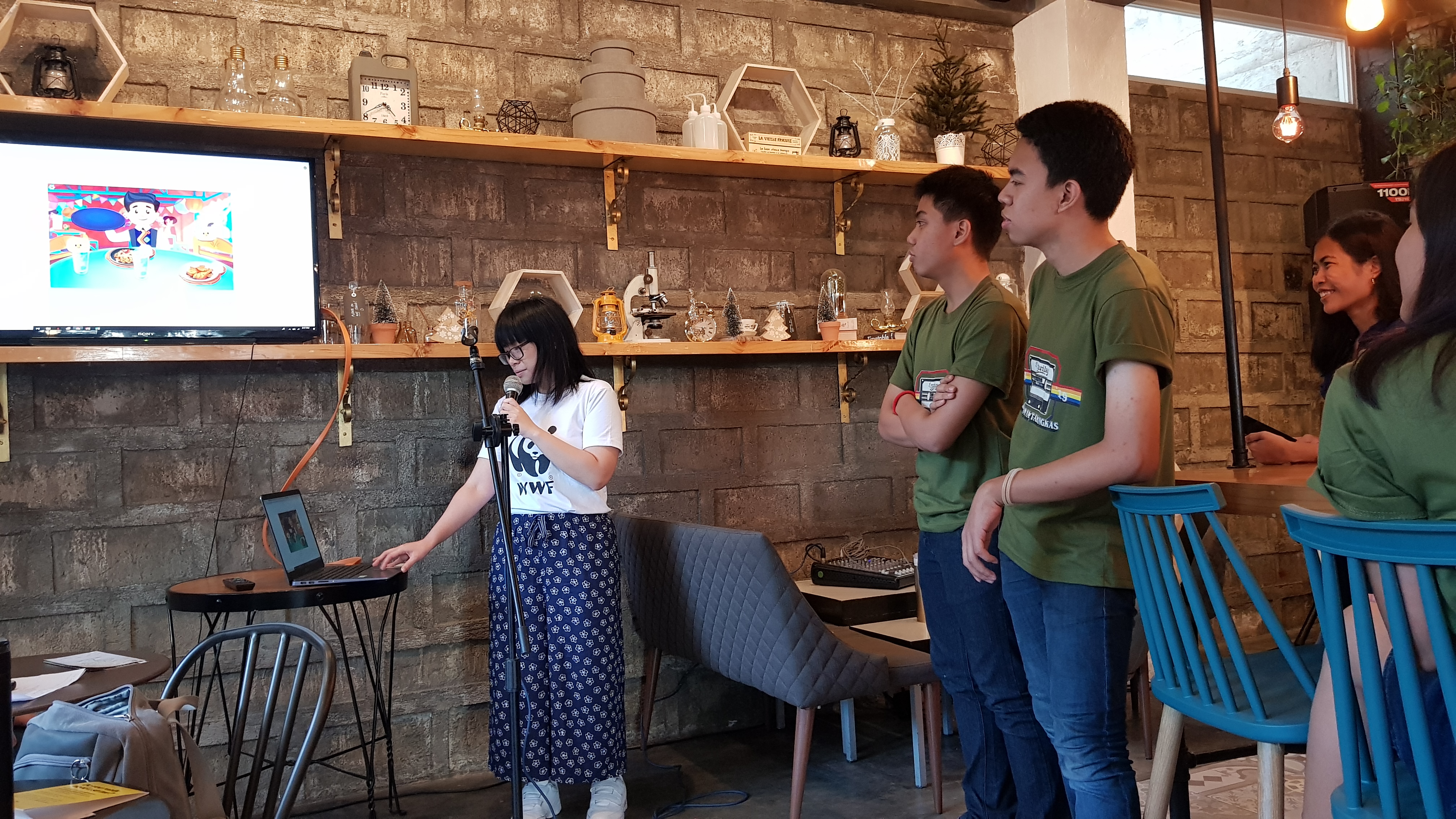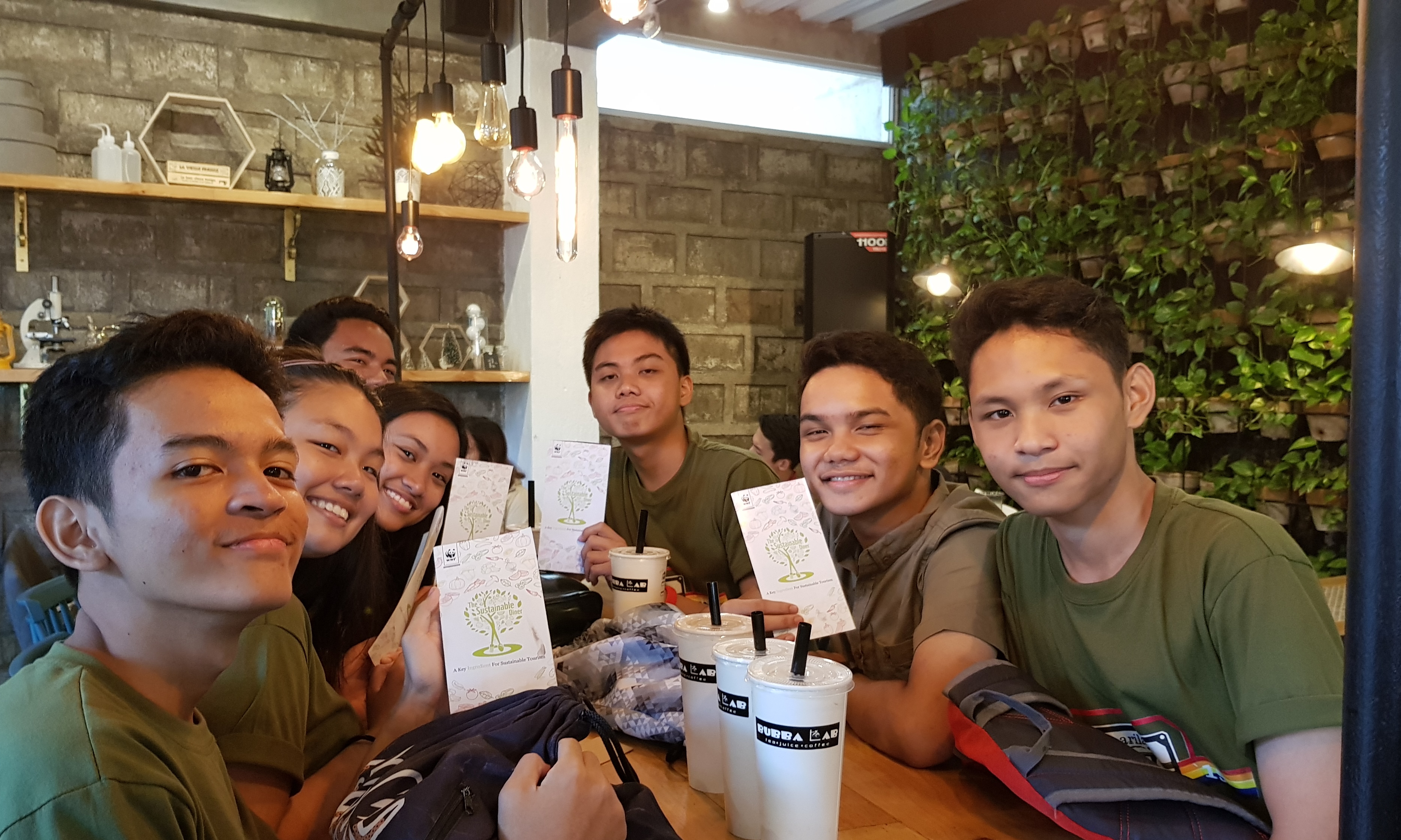The Sustainable Diner at Bubba Lab x The Last Straw Katipunan’s SIP Lab
November 2018

Representatives from WWF-Philippines, The Last Straw Katipunan, SIP PH, Waste Watch Philippines of Save Philippine Seas, and Bubba Lab gather for a group photo after the event. Photo © Pamela Luber / WWF-Philippines
Last November 24, World Wide Fund for Nature (WWF) Philippines’ The Sustainable Diner: A Key Ingredient for Sustainable Tourism project was invited to speak at Sip Lab: An Afternoon of Brewed Up Conversations on Waste Reduction, a collaboration between The Last Straw Katipunan and Bubba Lab, and presented by SIP Philippines. The event was comprised of three different talks on how regular Filipinos can reduce the waste they produce in their everyday lives, featuring Melody Melo-Rijk of WWF-Philippines, Pocholo Espina of SIP Philippines and The Last Straw Katipunan, and Gab Paloma of Waste Watch Philippines and Save Philippine Seas.

Melody Melo-Rijk, project manager of The Sustainable Diner Project, asks a student from Marikina Science High School about his restaurant dining habits. Photo © Pamela Luber / WWF-Philippines
Melody Melo-Rijk, WWF-Philippines’ Project Manager for Sustainable Consumption and Production, introduced The Sustainable Diner project to the audience, which was primarily made up of high school students and residents of Marikina City. Though not a part of the project’s three partner cities, Marikina City is bordered on the west by Quezon City, with its residents comprising a huge chunk of the dining public found in the latter city. To the students, Melo-Rijk stressed the importance of collaboration between society’s different industries in promoting sustainable practices especially in reducing plastic waste in the food service sector. She began her session by asking the students on their plans for senior high school and college. “Whichever degree you choose and whatever industry you will end up working for, you need to realize that it is only with collaboration across these different industries that we can change the reliance on plastics. You are our future leaders and you can help shape the plastic-free world you want to live in.”

Volunteer students play the Balay Kawayan game as assisted by Pam Luber of The Sustainable Diner project. Photo © Earl Andrew Aguirre / WWF-Philippines
During the talk, Pamela Luber, the project’s Integrated Marketing and Communications Specialist, did a quick demo of the Balay Kawayan game with help from volunteer participants from Marikina Science High School. The interactive material developed by the project helped the audience relate the importance of plastic waste reduction to becoming sustainable diners when dining out.

Students from the Marikina Science High School learning about sustainable dining and pledging that the straws that they used for their drinks would be their last. Photo © Pamela Luber / WWF-Philippines
WWF-Philippines’ talk was followed by Gab Paloma’s presentation on Waste Watch Philippines and Save Philippine Seas, championing the importance of waste reduction in ocean conservation and marine biodiversity protection. Waste Watch Philippines is a youth-led organization using online and offline platforms to to empower “seatizens” in becoming proactive defenders of our oceans. The event was closed by a short introduction on The Last Straw movement by SIP Philippines Founder and Chief Exsiputive, Pocholo Espina. Furthermore, Bubba Lab has pledged its commitment to reduce its use of plastic and was followed by a turnover of campaign materials.
The Sustainable Diner would like to thank The Last Straw Katipunan and Bubba Lab for inviting us to share our advocacy on sustainable dining with the residents of Marikina City. By working together and spreading the word to audiences even outside of our partner cities, we are able to change the mindsets and behavior of more Filipino diners nationwide!
The Sustainable Diner project, under WWF-Philippines’ Sustainable Consumption and Production, is part of the International Climate Initiative (IKI). The Federal Ministry for the Environment, Nature Conservation, and Nuclear Safety (BMU) supports this initiative on the basis of a decision adopted by the German Bundestag.
